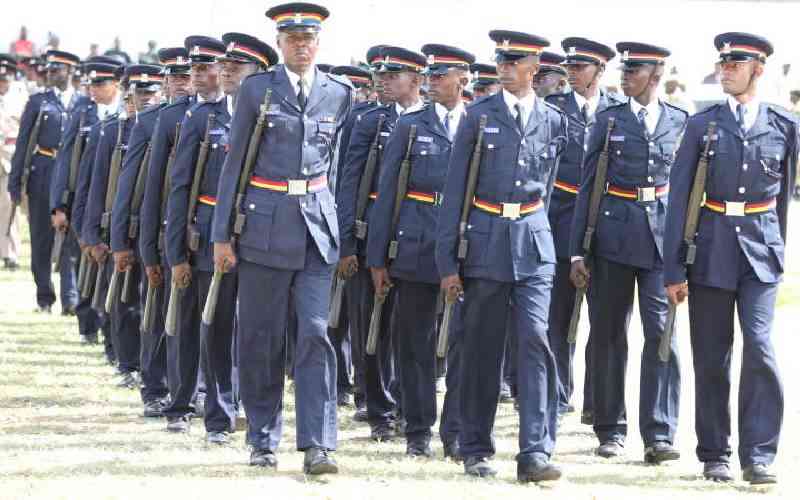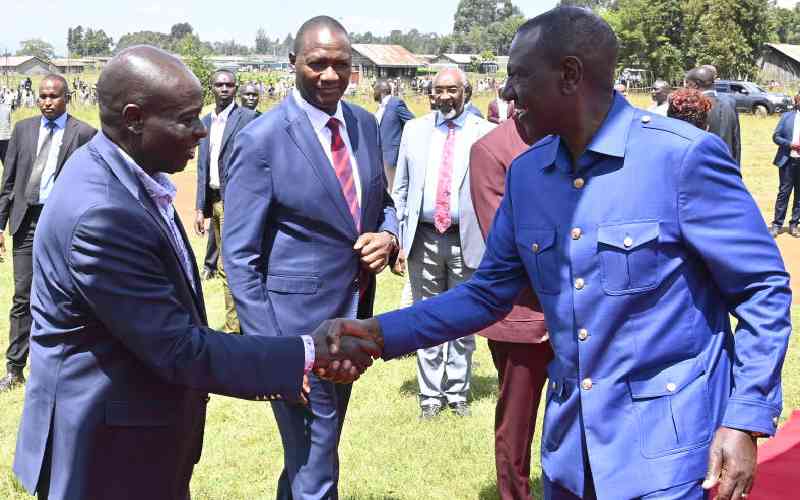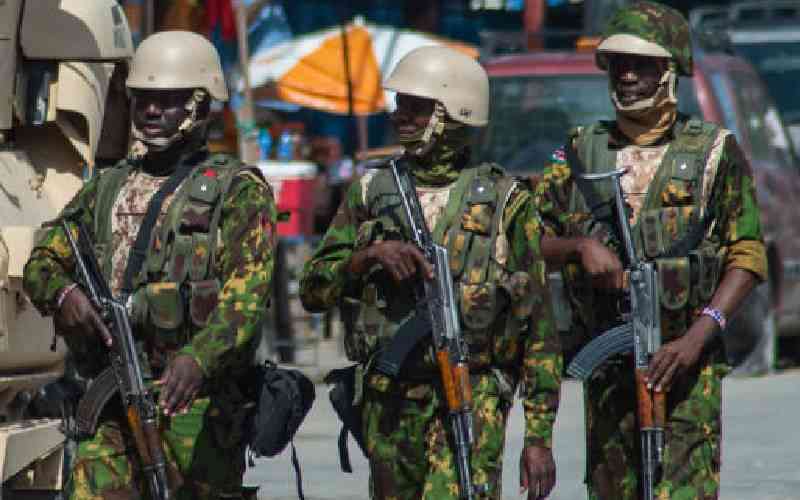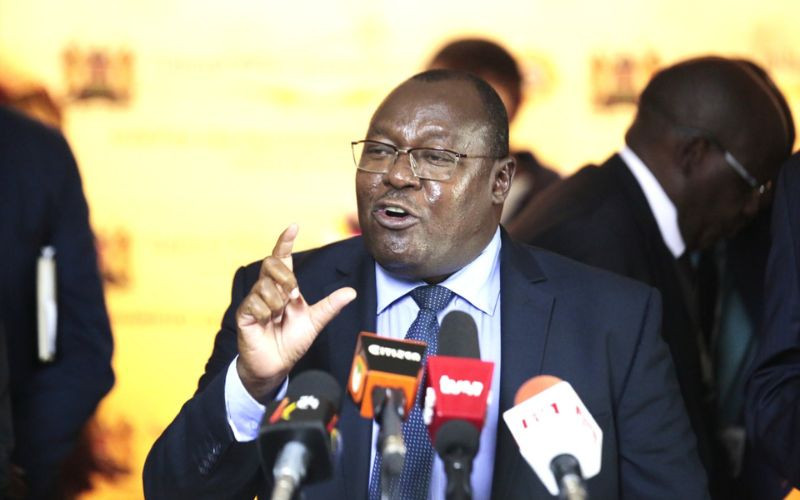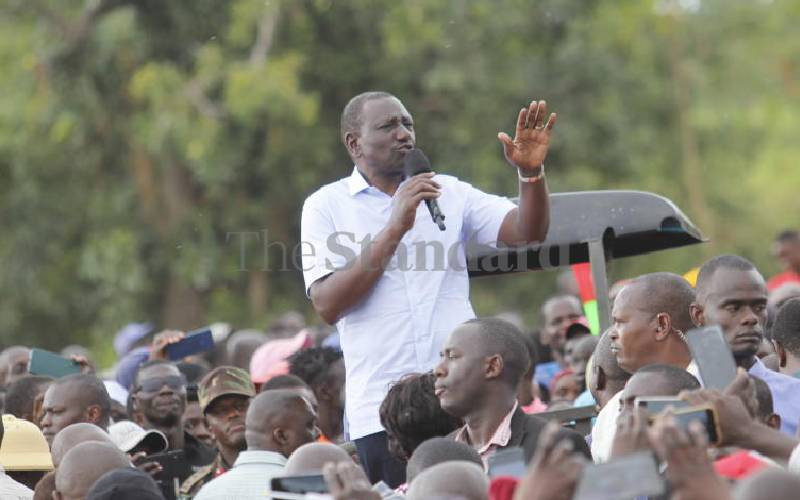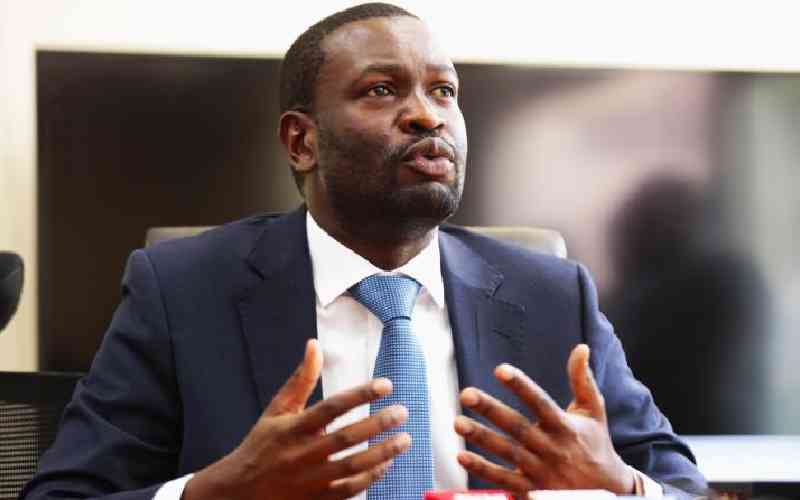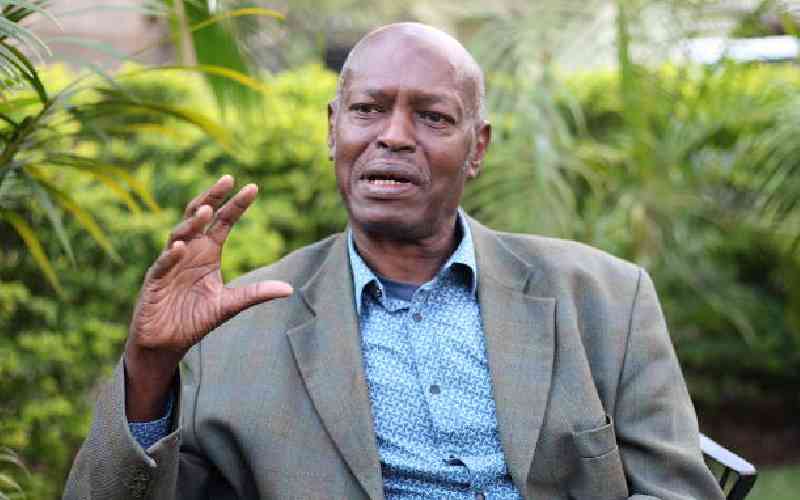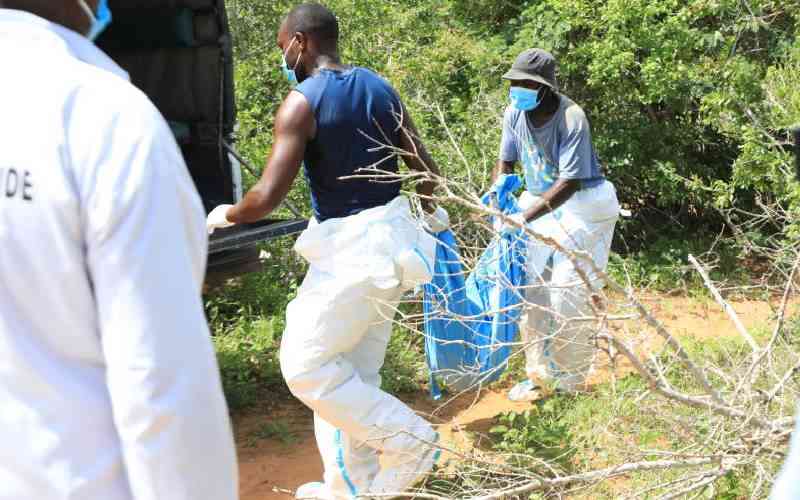By Kipchumba Some
Nairobi, KENYA: Fresh details have emerged over the fierce supremacy battle piting the Office of the President, the Inspector General of Police (IGP) and the National Police Service Commission.
The wrangles were sparked by efforts by the three offices to handle the revelations about police impostor Joshua Waiganjo but have since escalated to levels that are threatening to scuttle the ongoing police reforms.
In recent times, the National Police Service Commission (NPSC) and IGP have been issuing contradictory statements regarding appointments, promotions and transfers in the Police Service amid claims by the former of interference from the OP.
This has seen changes announced by either of the offices rejected by others as the IGP and NPSC try to assert their independence and authority.
At the heart of the controversy is the OP, which insiders say is keen to play a prominent role in police affairs in total disregard of the new Constitution that makes the Police Service independent of the Executive. Our investigations show the differences arose when Head of Public Service Francis Kimemia issued a statement from President Kibaki ordering investigations into Mr Waiganjo’s saga.
High ranking officials
Several high ranking officials at Vigilance House who spoke The Standard On Sunday said Mr Kimemia summoned Mr Kimaiyo to his office last month and informed him they had appointed retired PC Joseph Kaguthi to spearhead the investigations. Internal Security PS Mutea Iringo was to serve in the team.
An insider at Vigilance House said Kimaiyo had been directed by the OP to ensure the impostor saga is handled carefully so that it does not “over expose” the Police Service.
“He also wanted the adversely mentioned officers Rift Valley PPO John M’Mbijiwe, Anti-Stock Theft Unit Commandant Remi Ngugi, and Njoro OCPD Peter Njeru sent on leave and not suspended,” said the source.
When Kimaiyo went back to the commission to report what he had been directed to do, they rejected the orders.
“The commission felt no one could issue orders to them and the IGP,” said a senior official at Vigilance House who is aware of the turf wars, but who requested anonymity since he is not authorised to speak to the Press.
“The mandates of the commission and the IGP are very clear in law. What they were trying to do was illegal and the vested interests came out quite clearly,” he said.
But the commission reportedly said the issue was of national interest and needed to be thoroughly probed. The team decided that the officers be suspended to pave way for investigations.
The commission had its way and formed a team led by commissioner Mary Owuor, with lawyer Kioko Kilokumi representing the Law Society of Kenya as vice-chair.
It later emerged that one of the secretaries serving at the OP is Waiganjo’s sister. The secretary is said to have served at one point in the office of one of the powerful permanent secretaries who favoured the Kaguthi team.
Issue of ranks
But that is not all. Another issue that has brought differences between the commission and Kimaiyo is the issue of ranks and appointments that the former has carried out since his appointment.
Sources say the commission asked Kimaiyo last year to forward a list of names for the spokesman post and other top positions.
Stay informed. Subscribe to our newsletter
Among the names the IGP forwarded was that of deputy Commissioner of Police Francis Okonya whom he wanted appointed principle assistant to the Deputy Inspector General of Police Grace Kaindi, and Fred Mwei to be the principle assistant to DIG Administration Police Samuel Arachi.
The commission refused to confirm the names and instead demanded that Ms Kaindi and Mr Mwei make their case before them.Kimaiyo also gave out the names of former police spokesman Jasper Ombati and Administration Police spokesman Masoud Mwinyi as the people he wanted to be named the spokesman and deputy spokesman.
He suggested in writing that deputy spokesman Charles Owino be moved to traffic to head one of the provinces alongside other changes. In a letter to the commission dated January 28, he also suggested that Sicily Gatiti be named deputy spokesman of police.
Further, he wanted the current traffic commandant Benson Githinji Kibue be named the Nairobi provincial police boss, and Moses Ombati his deputy. He also proposed Okello Thwere to be chief of staff in his office and Samuel Kimaru to succeed Mr Kibue at traffic headquarters.
Of the names forwarded, the commission picked only two, but gave them different positions from the ones Kimaiyo had proposed.The commission picked Mr Munga as police spokesman and Ms Gatiti as head of human resource. Mr Kimaiyo rejected the appointments.
In a further escalation of bad blood, the commission has also raised concern with the deployment of former spokesman Eric Kiraithe to the Kenya Airports Authority, as the general manager of security affairs without its approval.
“Kiraithe is still a policeman and the move to deploy him to KAA without the commission’s knowledge was wrong and illegal. People need to respect the laws,” said an NPSC commissioner.
Another controversy surrounded the gazettement of John Owino as the director of the Kenya National Focal Point on Small Arms, a body under the OP, which Kimaiyo headed prior to his appointment as IGP. The commission argued that OP gazetted Mr Owino and used his name to portray regional balance in the appointments it had made, including Kimaiyo’s two deputies and Director of CID without its consent.
The commission once again declined the requests, but agreed to them later after pressure from “outside” and later named Owino the director of the Internal Affairs Unit a new directorate formed to deal with complaints against and amongst police officers.
Ms Gatiti was appointed the director, human resources. An instructor at the Kenya Police Training College in Kiganjo Anthony Munga was named new police spokesman to replace Kiraithe. Munga was to be deputised by Mary Wangui Omari, who is a provincial traffic officer in Nakuru. This irked Kimaiyo who said he had not been consulted on the appointments.
He also argued that the officers were junior by far. However, Kavuludi said there was nothing wrong because the law is clear that any officer of the rank of Superintendent can be promoted to any managerial rank.
The National Police Service Act gives the Inspector General powers to transfer any officer from the rank of a sergeant and below. However, he can transfer any officer above that rank with the permission of the NPSC. In this case NPSC argued that this did not happen. Things became worse at a meeting organised by OP and attended by the Commission of Implementation of the Constitution at a hotel in Naivasha between January 31 and February 2 to discuss, among other issues, the turf wars that are undermining operations at Vigilance House.
Also in attendance were senior officials in OP, Kimaiyo’s deputies and other senior officers. An NPSC commissioner said they were shocked to find “junior” officers in the service in attendance. The junior officers in attendance were Okonya, Mwei, Kahindi, and Arachi. They had been invited by the OP and Mr Kimaiyo. But at the insistence of NPSC commissioners, they were thrown out.
This led to a clash between Mr Kavuludi and Commission on Implementation of the Constitution (CIC) Chairman Charles Nyachae after they disagreed on some constitutional issues.
Insiders said Mr Nyachae wanted the implementation of some laws suspended until after the General Election.
When the Kavuludi team sought an explanation on the CIC proposal, they were informed that the security sector is sensitive and should not be tampered with, days to the General Election.
This prompted a walkout by four NPSC commissioners leaving Mr Kavuludi and commissioner Ronald Musengi arguing with Mr Nyachae.
On arrival in Nairobi, Mr Kavuludi was summoned to OP where he found members of the National Security Advisory Committee (NSAC) chaired by Kimemia waiting.
 The Standard Group Plc is a
multi-media organization with investments in media platforms spanning newspaper
print operations, television, radio broadcasting, digital and online services. The
Standard Group is recognized as a leading multi-media house in Kenya with a key
influence in matters of national and international interest.
The Standard Group Plc is a
multi-media organization with investments in media platforms spanning newspaper
print operations, television, radio broadcasting, digital and online services. The
Standard Group is recognized as a leading multi-media house in Kenya with a key
influence in matters of national and international interest.
 The Standard Group Plc is a
multi-media organization with investments in media platforms spanning newspaper
print operations, television, radio broadcasting, digital and online services. The
Standard Group is recognized as a leading multi-media house in Kenya with a key
influence in matters of national and international interest.
The Standard Group Plc is a
multi-media organization with investments in media platforms spanning newspaper
print operations, television, radio broadcasting, digital and online services. The
Standard Group is recognized as a leading multi-media house in Kenya with a key
influence in matters of national and international interest.

